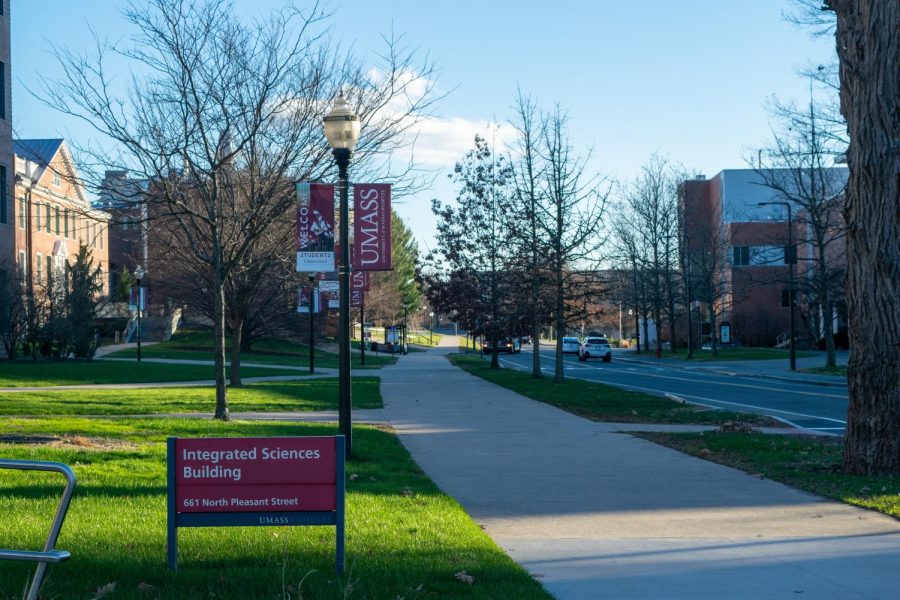The elevator in my building has been broken for four weeks. I noticed the first day it was broken, the two little yellow caution signs slapped onto the metal, indicating it wasn’t fit for use. At the time, this was simply an annoyance. I had to go down one flight of stairs to do laundry, hauling my hamper down the steps. But that’s all a broken elevator was to me: an inconvenience.
There are plenty of these inconveniences during a regular day on campus. One of the automatic doors has been broken for a few weeks at the library, so everyone has to use the other one. Same goes for the Integrative Learning Center — one of the automatic doors is broken, so everyone has to funnel through the other one. The paths on campus are uneven, so everyone walking must watch their step.
To me, and to most people, these things are only an inconvenience. In the grand scheme of things, they have little to no impact. But to someone with a disability or mobility issue, these “inconveniences” cut them off from the rest of the world. They rid them of their right to move freely through the campus as they see fit; they rid them of their autonomy.
Now, the average person probably doesn’t notice accessibility issues in the world. It’s simply not on their mind; they have no reason to think about moving through the world in a different way. But my experience is unique. I have a disability, cerebral palsy, the result of a traumatic brain injury when I was four years old. As a result, I don’t have full access to all of the muscles on my right side, I have poor balance and the occasional seizure. I’ve used a great deal of mobility aids: a wheelchair, a walker, a cane and typically a plastic leg brace called an AFO.
Unless I told you, you wouldn’t know that I’m disabled. I’m thankful to move through the world on most days with ease. I can use the stairs, I can use my arms and I can even keep myself from falling after a stumble most of the time. At a glance, I’m able-bodied, though not everyone on this campus is.
Because of my injury at a young age, I’ve always had to look at the world through the lens of accessibility. Are those stairs too narrow? Will that path damage this equipment? Does that door open automatically? Is there a ramp? Is there enough room for my wheelchair?
In short, is the world accessible to me? On this campus, the answer is usually no.
Inaccessibility is glaringly obvious on this campus. A decent portion of doors, especially bathroom doors, do not have automatic door openers, or sometimes even handicap stalls. The dining halls are jam-packed with tables and chairs, allowing no space for someone with mobility issues to move through. The landscape is often rocky and narrow. Elevators don’t work.
The list goes on and on. Once you notice one accessibility issue, you can’t stop. I can’t help but feel frustrated with this campus, and these issues don’t personally affect my day-to-day life.
The fact that the elevator in my building is still broken after weeks, when I know there is a wheelchair user on my floor, is baffling to me.
March is National Disability Awareness Month. It’s a time to appreciate our differences, look back on how far we’ve come regarding disability rights and look to the future. It’s supposed to be a celebration, a joyful time, but all of the accessibility issues I’ve noticed in recent weeks put a damper on the occasion. UMass’ campus is riddled with inaccessibility and needs systemic change.
Shannon Moore can be reached at [email protected].





















Susan • Mar 24, 2023 at 8:23 am
This thought provoking article is an eye opener. Thank you Shannon for sharing your perspective. Where’s the outrage? Change is mandatory, now!
Jim moore • Mar 24, 2023 at 8:18 am
Great article Shannon. Hoping the school reads this and takes some action to repair the issues
You have a special way of writing that makes the issues feel very personal
Keep it up
Jim
Halle Kane-Sylvia • Mar 23, 2023 at 11:09 am
beyond well said and a powerful message for all to read, able bodied or otherwise!